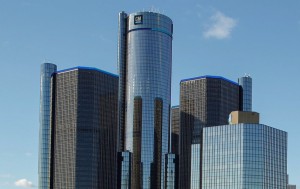
General Motors is not only facing multiple federal investigations, 45 attorneys general are also conducting queries regarding the company's faulty ignition switch.
Already facing investigations by both houses of Congress, as well as a criminal probe by the U.S. Justice Department, General Motors revealed Thursday that it is now facing additional investigations by the attorneys general in 45 states linked to its long delay in ordering a recall of 2.6 million vehicles equipped with defective ignition switches.
Though some probes had previously been announced – GM earlier confirming it had gone before a federal grand jury in New York – the latest revelation suggests the maker’s safety woes could get substantially worse, while it could also be facing significant new fines and legal costs.
The news was revealed on the same day GM announced that it had earned a meager $200 million during the second quarter of 2014 due to expenses of more than $1 billion to cover the cost of various recall repairs and the establishment of a victims’ compensation fund linked to the ignition switch problem. A day earlier, the troubled maker had submitted documentation to federal regulators indicating the number of people killed or injured due to crashed caused by the switch problem could rise.
The maker has not increased the number of fatalities it officially cites, a total of just 13. But in its quarterly Early Warning Report required by the National Highway Traffic Safety Administration, it listed a possible 17 deaths and 167 injuries in Chevrolet Cobalt and Saturn Ion sedans. Independent studies, including one by the Reuters news service, have indicated that the figures could go substantially higher than that, perhaps to as many as 70 or even more deaths.
A number of questions have been raised about GM’s handling of the ignition switch problem, which internal documents show was first identified more than a decade before the February 2014 recall. Among other things, it remains uncertain whether the maker intentionally ignored safety problems to improve its bottom line.
(GM earnings crushed by recall costs. For more, Click Here.)
That possibility was dismissed by GM’s internal investigation, which was handled by former U.S. Attorney Anton Valukas, but some critics continue to raise that concern. They also are asking whether GM intentionally misled federal regulators or other government officials, including those who, in 2009, led the effort to put together a bailout to rescue the automaker from bankruptcy. Among other things, such actions could be construed to be violations of federal wire fraud laws.
(Click Here for details showing GM’s victims’ fund could costs $600 million.)
The Justice Department probe is considered to be the most serious issue facing GM, but any of the other investigations could create legal issues – and add to the already significant costs GM has run up. While it is far too early to judge where the Justice probe might go, many observers believe the Detroit maker will eventually face the prospect of serious fines in line with the $1.2 billion levied against Toyota earlier this year for its own recall mishandling.
But it is also possible that one or more current or former GM employees might face criminal charges. Following the release of the Valukas probe in June, the maker announced it was terminating 14 employees, including two directly linked to the decision not to order a switch recall earlier. GM CEO Mary Barra said, at the time, that she saw no need to discipline any other company employees.
(To see more about GM recalling another 717,000 vehicles, Click Here.)
On Thursday, GM CFO Chuck Stevens said he expected the new victims’ compensation fund to cost at least $400 million, perhaps $600 million. But GM is facing the prospect of paying more if any of a variety of lawsuits – including 95 class actions disclosed by the maker – succeed. That includes one filed by a Seattle law firm seeking as much as $10 billion to cover the alleged lost value of GM products.
There are currently 26 separate lawsuits claiming wrongful death or injuries resulting from allegedly defective GM products.

Everybody wants to cash in on what amounts to a minor mechanical failure. When our state and Federal governments are able to clean up their own houses, then maybe they should look to see what if anything can be improved in product defect recalls. Grandstanding just wastes tax payer dollars.